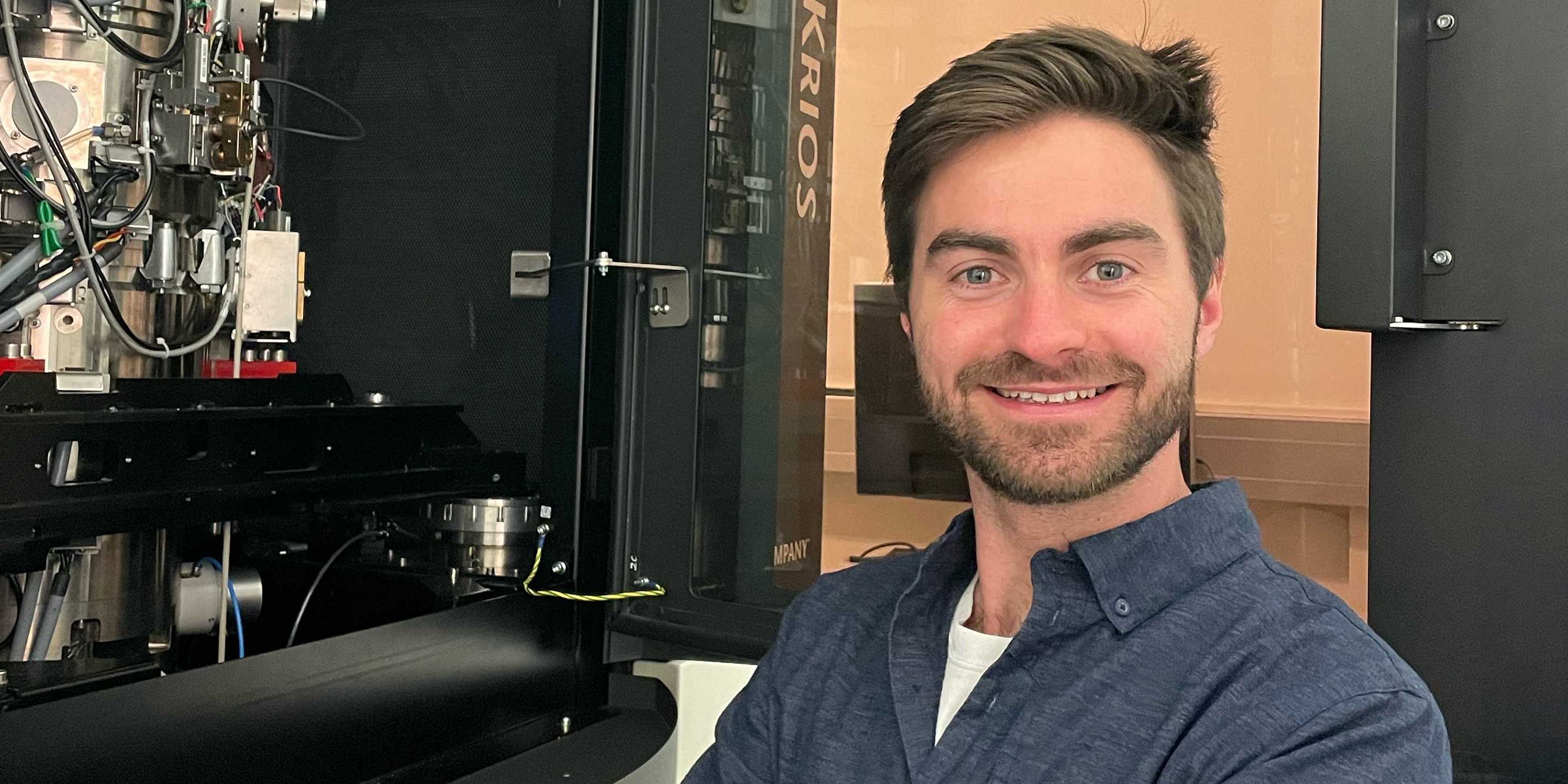Lopez-Loreta Prize for Gregor Weiss
Gregor Weiss used state-of-the-art microscopy to show how the body prevents bladder infections. He now wants to make this method from basic research usable for the analysis of patient samples – and has received the Lopez-Loreta Prize for it.

Gregor Weiss researches how bacteria and human cells interact. Such interactions are relevant, for example, when it comes to urinary tract infections. When gut bacteria enter the urinary tract from the outside, they attach themselves to the cells of the urethra, ureter or bladder with their hair-like appendages, the pili, and trigger painful inflammation.
Weiss is a structural biologist. He is interested in the components and molecular mechanisms that give cells their specific capabilities. He gains insights using a high-resolution microscopy method that fascinates him: cryo-electron tomography (CryoET). The samples are not chemically modified, but rather quickly frozen in their natural state. 'This makes it possible to view intact cell structures with an unprecedented level of detail,' he enthuses.
Collaboration with clinicians
In his doctoral thesis, Weiss examined the body’s own protein uromodulin, a common protein in urine. All that was known about it was that it protects the urinary tract from infections. In order to regularly receive fresh urine samples from patients, he established a collaboration with the Children’s Hospital Zurich. Together with other researchers, Weiss used CryoET to describe the structure of uromodulin for the first time and to clarify the mechanism by which the protein fights off gut bacteria in the urinary tract.
In a noteworthy publication in Science, he showed that uromodulin forms long chains that bind to the pili and engulf the bacteria. The pathogens are then unable to dock to the cells in the urinary tract and are excreted with the urine.
Deeper insights for diagnostics
The work is relevant in two ways. On the one hand, the findings provided possible starting points for antibiotic-free treatment and prevention of painful urinary tract infections – countless patients would benefit from this. On the other hand, Weiss impressively demonstrated the potential of CryoET for clinical diagnostics. Owing to the higher resolution, this modern method offers much deeper insights into the cell structure than established clinical tools.
Weiss received the ETH Medal in autumn 2020 for his doctoral thesis. In 2021, he was awarded the Prix Schläfli by the Swiss Academy of Sciences. He decided to continue his research and to use CryoET in the future for the analysis of clinical patient samples such as biopsies. Gregor Weiss has now received this year’s Lopez-Loreta Prize for his promising project.

Establishing his own group
'Science is always teamwork,' says Weiss. He feels very fortunate to have met wonderful mentors, colleagues and collaboration partners. 'You can’t make progress in modern research on your own.'
For a few months, Weiss has been building his own research team, which is based as a sub-group in the laboratory of his doctoral supervisor, ETH Professor Martin Pilhofer. Two doctoral students who share his fascination for high-resolution CryoET are already on board.
This is a useful development, since uropathogenic bacteria have actually also been observed inside cells of the urinary tract. 'There, they are well protected from the body’s defences and antibiotics, which leads to recurring urinary tract infections,' explains Weiss. His group wants to find out how the bacteria are able to settle themselves in our cells.
The Lopez-Loreta Prize will help with this. With the prize money amounting to 1 million euros, Weiss wants to expand the team and intensify collaborations with clinical partners. He would like to continue taking unconventional paths and building bridges in the future.
Lopez-Loreta-Preis
The prize, donated by the “Fondation Jean-Jacques et Felicia Lopez-Loreta pour l’excellence académique”, honours outstanding ETH graduates every year. The winners of the Lopez-Loreta Prize receive 1 million euros to implement their own research or innovation projects. The award ceremony takes place on ETH Day.
Comments
No comments yet